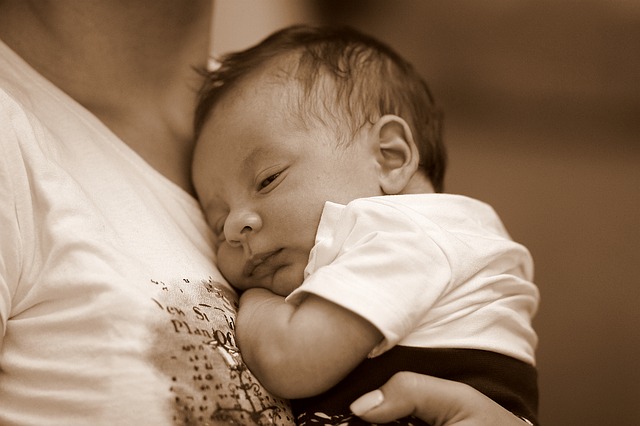Around 77 million newborn babies are not breastfed within the first hour after birth, depriving them of essential antibodies, nutrient and contact with their mothers that protect them from diseases and death, UNICEF reported in a press release.
That’s one in two babies who don’t get breast milk right away. France Begin, UNICEF Senior Nutrition Adviser, says that, “Making babies wait too long for the first critical contact with their mother outside the womb decreases the newborn’s chances of survival, limits milk supply and reduces the chances of exclusive breastfeeding.” In addition,
If all babies are fed nothing but breast milk from the moment they are born until they are six months old, over 800,000 lives would be saved every year.
The progress in encouraging breastfeeding for newborns within the first hour of life has been at a crawl for the last 15 years, UNICEF data finds. For example, in sub-Saharan Africa where mortality rates for children under five years old are the highest worldwide, early breastfeeding in East and Southern Africa increased by just 10 percent since 2000. Numbers in West and Central Africa have not changed.
In South Asia, rates of early breastfeeding have tripled in 15 years, from 16% in 2000 to 45% in 2015, but the leap in numbers still means that 21 million newborns wait too long to be fed.
The longer breastfeeding is put off, the higher the infant’s risk of dying in the first month. Delaying breastfeeding by two to 23 hours after birth raises the risk of death in the first 28 days of life by as much as 40%. Delaying for more than 24 hours increases the risk to a whopping 80%.
This is largely because “breast milk is a baby’s first vaccine, the first and best protection they have against illness and disease,” Begin says. This means early breastfeeding can make a big difference in the mortality rates of children under five years old.
UNICEF studies show that women are not getting proper help to begin breastfeeding immediately after giving birth, even when a doctor, midwife or nurse is present to assist in delivery. In the Middle East, South Asia and North Africa, women who give birth with a medical professional present are actually less likely to start breastfeeding in the first hour, compared to women who had non-professional relatives or friends present.
Feeding infants other kinds of liquids or foods accounts for the absence of early breastfeeding as well. In some countries, babies are generally fed infant formulas, cow’s milk or sugar water in the first three days of life, instead of breast milk. These less nutritious alternatives make it more difficult for mothers to start and continue breastfeeding.
Only 43% of babies under 6 months old are exclusively breastfed worldwide. Infants who are not breastfed at all are reportedly 14 times more likely to die early than those who were fed with breastmilk only.
Any amount of breast milk, no matter how little, helps reduce a child’s mortality risk. Babies who receive no breast milk at all are shown to be seven times more likely to die early than those who received some breast milk in their first six months.
The annual World Breastfeeding Week will be taking place from 1-7th August in over 170 countries, to promote breastfeeding and improve infant nutrition around the world.
























